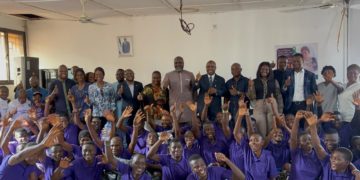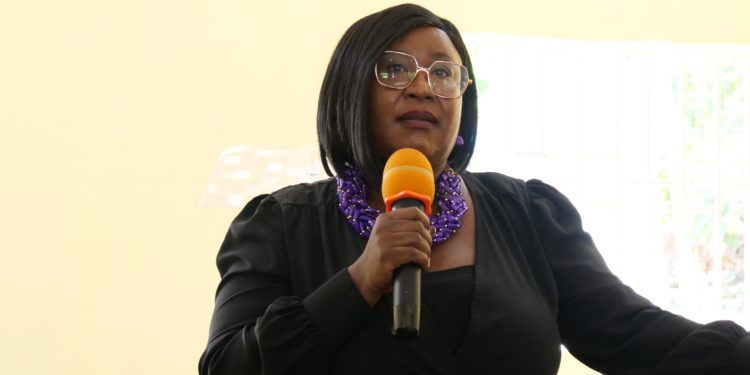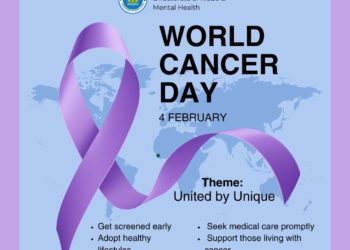By Kemo Cham
The bloody incident of January 6, 1999 in Sierra Leone was the result of lack of love, according to Pastor Faith Okrafo-Smart.
The activist and woman of God, who founded the Melquosh Mission International charity organization also warns that the same situation that led to that dark chapter of the country’s past prevails today, making it vulnerable to a similar fate.
“It is only 22 years after the war ended, but it seems we are fresh from it,” says Pastor Faith.
“Love is the only thing that can heal Sierra Leone. Without care, the disease of hate can lead the country back to war,” she stressed.
She was speaking at a memorial event on Saturday, January 6, commemorating the 25th anniversary of the day known by many Sierra Leoneans as J6, when carnage engulfed the capital, Freetown, towards the end of the country’s eleven-year long (1991-2002) civil war.
On that faithful day in 1999, fighters of the defunct Revolutionary United Front (RUF) descended on the city and wreak havoc – shooting indiscriminately at every living thing. Many of those who survived had at least one of their limbs cut off by the rebels who reportedly received support from deserting soldiers.
According to some experts on the war, the trend of amputation that the war became well known for globally became widespread on January 6th.
Some estimates say over 20, 000 people had at least one of their limbs amputated by the end of the war. Many of these people today live across the country in special camps for amputees, most of them in squalid conditions.
The Melquosh Mission, founded by Pastor Faith about a decade ago, is among a few organizations that continue to support such victims of the war, over two decades after the guns went silent.
The Melquosh Mission is a non-profit working to empower disable people, with particular focus on war victims. The organization provides scholarship to children of war wounded and business support for widows.
The event on Saturday is one way the organization extends support to its beneficiaries. Held in the church facility within the Newton Amputee Camp, it brought together amputees from within the camp and others supported by the Mission.
Many guest pastors from sister churches across the country took turns to speak about the state of the nation and prayed for God’s guidance towards peace. But the focus was on the woman of the day, Pastor Faith, who travelled all the way from her base in the United States to grace the event she hosts annually.
She spoke about the causes of the war and how the nation failed to take advantage of initiatives born out of the peace process to better the lives of citizens. She believes that the war never really ended due to the hate that continues among Sierra Leoneans.
“What we are facing in present day Sierra Leone is that we never ever recovered from the war,” she tells the audience.
Pastor Faith particularly laments the continued neglect of victims of the war, whom she says were victims of circumstances they didn’t cause.
She also laments the failure of successive governments to implement critical aspects of the post-war Truth and Reconciliation Commission (TRC) report which proffers recommendations that hold the key to peace, national cohesion and solace for victims.
“Governments after governments after governments have failed war wounded,” she says.
The stories of some of the men and women in attendance serve as motivation for hundreds, if not millions of people who lack opportunities to survive. Yet it is stories like these that inspire the continued support of the Melqos Mission founder.
According to Pastor Faith, she tried several times to quit due to the demanding nature of the task of looking after the war wounded without much external support. She only gets the zeal to continue by the sad state of their plight.
“We have lost a lot of amputees and war wounded due to treatable illnesses,” she says. “Some of these deaths are avoidable, but it’s because there is no free medical for amputees.”
There is a policy for People With Disabilities (PWDs) in Sierra Leone to access free healthcare, but according to those eligible for it, it is not implemented. They say they are usually turned away from health facilities with no treatment, amid excuses of lack of medications.
“There is an alarming rate of high mortality among war survivors,” stresses Pastor Faith, listing the names of some people of those who passed away in the last 12 months. They included Pa Alusine, who left two kids.
“If you are here, you should thank God, because you are alive,” she says.
According to Pastor Faith, the issue of amputees is not just for the government, but religious leaders as well. She laments that those who paid the greatest price of the war are ignored by religious leaders who focus on wealth accumulation.
Apparently, personal experience is also a driving force behind her continued involvement in the work serving theses disadvantaged people. Her father died due to indirect causes of the war.
Pastor Faith narrates how he was captured on January 6, 1999 by the invading rebels, who poured fuel on him and dragged him on the streets, apparently to be killed. But the man wasn’t to die on that day. He was saved thanks to the intervention of peacekeeping forces, she recalls.
Some years later, Pastor Faith’s father would again come under attack after the rebels struck Freetown for the second time. He fell from a three storied build trying to flee for his life, breaking his leg. He would die later from complications from that injury due to lack of proper health care, says Pastor Faith.
“My father wasn’t an amputee or war wounded, but he was wounded. He limped for the rest of his life,” she says.
The hall in the Church was full of similar heartrending stories, like that of Abraham Israel Koroma, who was saved from being amputated only because his mother chose to take double amputation.
Abraham was a little boy on January 6, 1999. His mum was one of the people who had their limbs cut off in their community. When the rebels turned their cutlass towards Baby Abraham, the mother pleaded for mercy. But they could only grant her plea if she could take a second amputation. She did.
Twenty-Five years later, Abraham is a grown man, and he heads a school that provides support for underprivileged kids. He also works for the charity Plan International, serving humanity.
Abraham is also just months away from being conferred with a first degree in community development studies, having graduated with a diploma in theology. The young man is one of dozens of children of maimed war victims who have benefitted or continue to benefit from the support of the Melquosh Mission through scholarship.
He is grateful for the organization for giving him a chance to make it in life, he says.
But he is even more proud of his late mother, who has inspired the humanitarian spirit in him today.
“I am inspired by the sacrifice of my mother for me to help other people facing hardship,” he says.






















